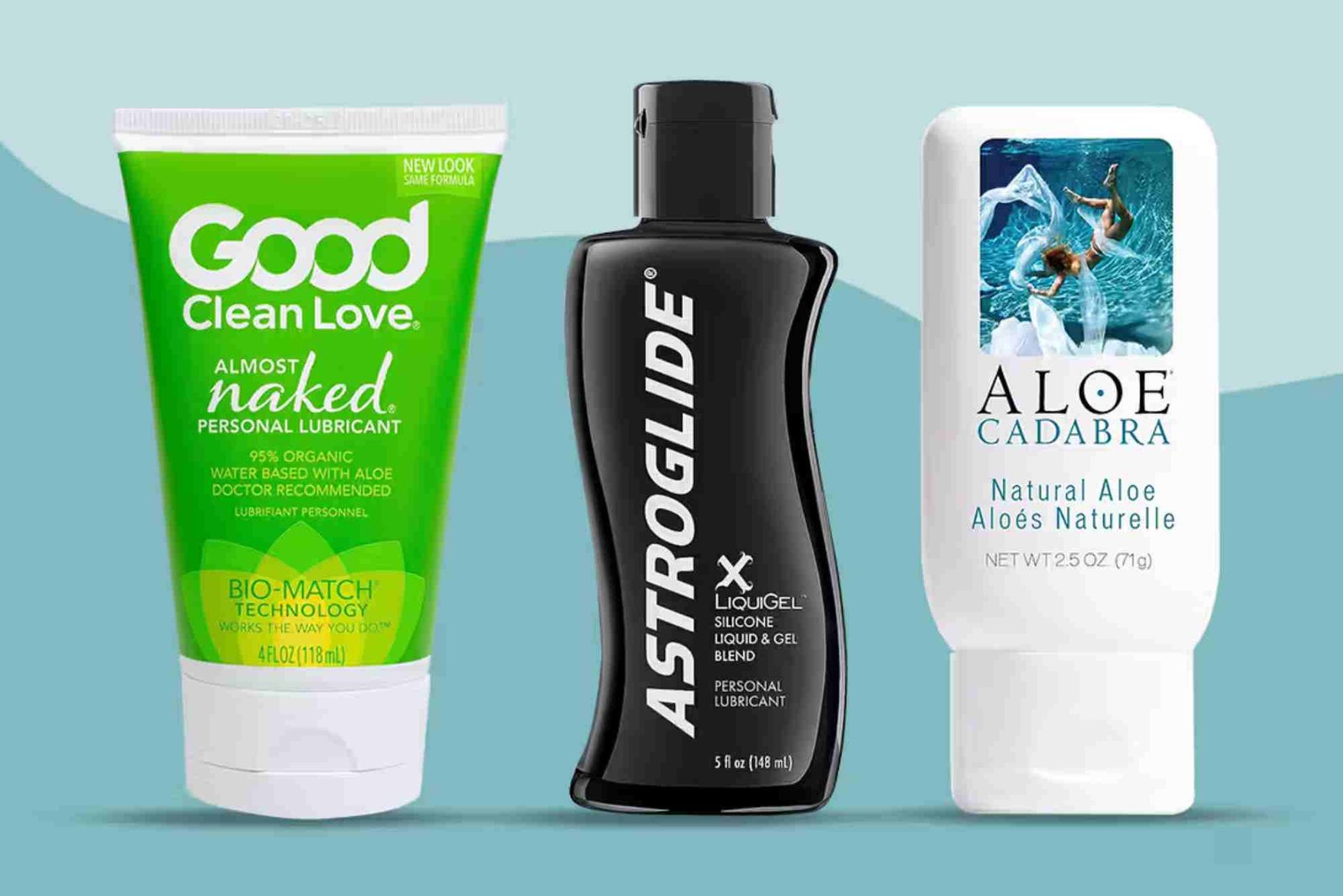Introduction
Menopause brings with it a wave of hormonal changes that can deeply affect a woman’s body, emotions, and intimate life. Among the most common challenges is vaginal dryness — a condition that can lead to discomfort, itching, pain during intimacy, and reduced confidence. In this Best Lubricant For Menopause Dryness NHS — A Practical Guide, we explore effective NHS-approved solutions, how lubricants work, and which types provide lasting relief for menopausal women.
The goal is to empower women with clear, evidence-based information — blending medical insight with practical advice — so they can regain comfort and intimacy during menopause.
Understanding Menopause and Vaginal Dryness
Menopause marks the end of menstrual cycles, usually occurring between ages 45 and 55. This natural transition results in reduced estrogen levels, which can lead to thinner vaginal tissues and decreased natural lubrication.
When vaginal dryness occurs, it can cause itching, burning, soreness, and discomfort during sex — all of which can impact physical and emotional well-being. Fortunately, several NHS-recommended lubricants and moisturisers can ease symptoms effectively.
These products are non-hormonal, safe for daily use, and designed to support natural moisture levels.
The NHS Approach to Managing Menopausal Dryness
The NHS encourages women to discuss menopausal dryness openly with healthcare professionals. Many women hesitate to bring up intimate concerns, yet it’s a common issue that deserves medical attention.
According to NHS guidance, treatments for vaginal dryness fall into two main categories:
-
Lubricants: Used before or during sexual activity to reduce friction and enhance comfort.
-
Vaginal Moisturisers: Applied regularly (a few times per week) to maintain natural hydration.
Both play an important role, but choosing the right one can make a noticeable difference in comfort and confidence.
What to Look for in the Best Lubricant for Menopause Dryness
Finding the right lubricant isn’t just about picking what feels good — it’s about understanding your body’s needs and the product’s composition. Here’s what NHS experts and gynecologists recommend checking before choosing:
Water-Based Formulas:
Water-based lubricants are the top recommendation by the NHS. They’re gentle, easy to clean, and compatible with condoms and sex toys. These are less likely to cause irritation or allergic reactions.
pH-Balanced Products:
A healthy vaginal environment requires a balanced pH. Look for lubricants that maintain this balance, protecting against infections and irritation.
Avoid Fragrances and Additives:
Artificial scents and colors can trigger discomfort, especially for sensitive menopausal skin. Always choose unscented and hypoallergenic options.
Long-Lasting Moisture:
Some premium NHS-approved lubricants contain hyaluronic acid or glycerin, which help retain moisture longer and support tissue elasticity.
NHS-Recommended Lubricants for Menopause
The NHS mentions several over-the-counter lubricants that are safe and effective for menopausal dryness. These include well-known brands available at pharmacies and supermarkets:
Sylk Natural Intimate Moisturiser:
Made from natural kiwi vine extract, Sylk closely mimics the body’s natural lubrication. It’s gentle, non-sticky, and suitable for women with sensitive skin.
YES WB Water-Based Lubricant:
This organic option is certified by the Soil Association. It’s free from parabens, glycerin, and hormones — making it an ideal choice for daily comfort and sexual activity.
Replens MD Vaginal Moisturiser:
Recommended for long-term moisture, Replens helps replenish and retain vaginal hydration. It’s often suggested for women with more persistent dryness.
Balance Activ Menopause Moisture Gel:
This gel helps maintain natural vaginal pH and provides relief from dryness and irritation. It’s discreet and suitable for daily use.
These products align with NHS safety standards, meaning they’re clinically tested, non-hormonal, and free from harsh chemicals.
How to Use Lubricants Effectively
Using lubricants correctly enhances comfort and ensures the best results. Apply a small amount to the vaginal opening and internal area before intercourse or when you feel dryness. For moisturisers, use them regularly — about two to three times weekly — regardless of sexual activity.
It’s also important to test new products on a small area first, to check for any allergic reactions. Remember, every woman’s body is unique, so what works for one may not work for another.
Natural and Home Remedies That Complement Lubricants
Some women prefer combining medical products with natural methods to boost comfort. Staying hydrated, maintaining a balanced diet rich in omega-3 fatty acids, and practicing pelvic floor exercises can improve circulation and vaginal elasticity.
Additionally, plant-based oils like coconut oil can provide temporary relief. However, NHS guidelines warn against using petroleum jelly or baby oil, as these can upset the vaginal pH and cause infections.
Hormone Replacement Therapy (HRT) and Vaginal Estrogen
In some cases, over-the-counter lubricants may not be enough. If dryness remains severe or persistent, the NHS may recommend vaginal estrogen treatments, such as creams, tablets, or rings.
These treatments deliver small amounts of estrogen directly to the vaginal tissues, helping restore natural moisture and elasticity without affecting the rest of the body. Women who prefer not to use systemic HRT often find this local treatment beneficial and effective.
The Psychological Impact of Vaginal Dryness
Menopause is not only a physical transition but an emotional one. Vaginal dryness can lead to discomfort, reduced intimacy, and anxiety about sexual relationships. It’s important to approach the topic with openness — both with your partner and healthcare provider.
Communication helps reduce anxiety and strengthen emotional connection. Using lubricants and moisturisers can restore comfort, making intimacy pleasurable again rather than stressful.
The Role of Lifestyle and Mental Health
Stress and lack of sleep can worsen menopausal symptoms. Incorporating mindfulness, yoga, and regular exercise can balance hormone levels and improve overall well-being. Remember that self-care during menopause goes beyond products — it’s about nurturing your whole self.
Related Insight: What Is Media Planning In Advertising
Just as choosing the right lubricant requires planning and understanding your needs, so does What Is Media Planning In Advertising. Media planning involves selecting the most effective channels to reach the right audience at the right time. Similarly, choosing the right product for menopause dryness means aligning solutions with your personal comfort and health goals.
For further insight, you can explore Top Tips: What Is Media Planning — which outlines how strategic planning can lead to better outcomes, whether in business or personal health choices.
And for a fresh perspective on visual storytelling, check out What Is Video Advertising — A to understand how presentation influences perception, much like how confidence and comfort shape menopausal experiences.
Common Mistakes When Choosing a Lubricant
Even the best product can fail to deliver results if used incorrectly. Some common mistakes include:
-
Choosing oil-based lubricants with latex condoms, which can cause breakage.
-
Using perfumed or flavored options that irritate sensitive tissues.
-
Not applying enough product before intercourse.
-
Ignoring regular moisturising — dryness requires consistent care, not just occasional use.
Awareness of these mistakes ensures you get the full benefit of your chosen product.
FAQs
What lubricant does the NHS recommend for menopause dryness?
The NHS recommends water-based lubricants such as Sylk, YES WB, and Replens MD. They are non-hormonal and safe for long-term use.
Are natural oils safe to use for vaginal dryness?
While coconut oil or olive oil can provide short-term relief, they are not NHS-approved and can alter vaginal pH, potentially increasing infection risk.
Can lubricants replace hormone therapy?
No. Lubricants provide surface-level relief, while hormone therapy restores internal tissue health. Some women may use both together under medical advice.
How often should vaginal moisturisers be used?
They can be applied two to three times per week or as directed on the product label. Regular use maintains moisture and prevents irritation.
Is vaginal dryness permanent after menopause?
For many women, symptoms can persist, but they are manageable with consistent use of lubricants, moisturisers, or localized hormone therapy.
Vaginal dryness is one of the most common yet treatable aspects of menopause. With the right knowledge and products, comfort, confidence, and intimacy can all return. NHS-approved lubricants and moisturisers are effective, affordable, and widely available — empowering every woman to feel like herself again.
Don’t hesitate to consult your GP or pharmacist if symptoms persist or worsen. You deserve comfort, health, and fulfillment at every stage of life.
If you found this Best Lubricant For Menopause Dryness NHS — A Practical Guide helpful, share it with other women navigating the same journey. Awareness leads to empowerment — and relief begins with knowledge.




